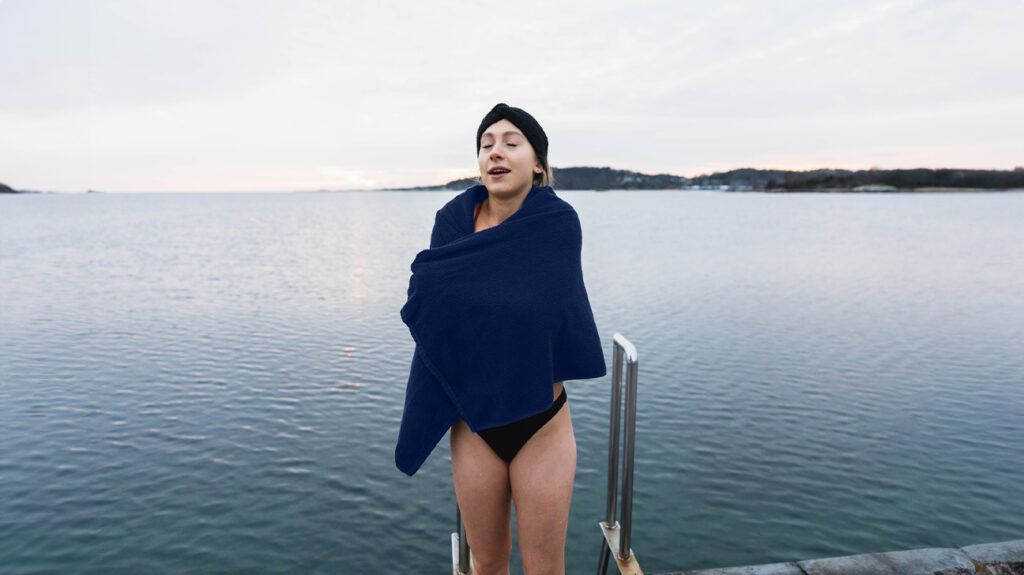
- Diabetes is a condition affecting blood glucose (sugar) levels.
- Type 1 diabetes occurs when a person’s body stops producing insulin, the hormone that controls blood glucose. In type 2, the body stops responding to insulin.
- For many people with diabetes, a healthy diet and appropriate exercise can help control blood glucose and minimize the risk of complications, such as heart disease, chronic kidney disease and vision problems.
- A new study in rats with diabetes has found that a combination of cold-water swimming and cinnamon supplements lowered blood glucose levels.
- The researchers suggest that this method may help people with diabetes control their blood sugar levels.
Diabetes is a chronic health condition where blood glucose control is impaired. It is major cause of mortality and ill health globally.
In 2021, some
The prevalence of diabetes is increasing rapidly. Within 20 years, studies predict that there will be more than 700 million people with diabetes worldwide, and by 2050, that number could be as high as
People with type 1 diabetes do not produce insulin, so need to control their blood sugar levels with regular insulin injections or an insulin pump.
However, only some people with type 2 diabetes need additional insulin. For most, changes in diet and exercise, together with medication, are key to managing the condition.
Now, a study in rats with diabetes has found that cold-water swimming, combined with cinnamon supplements, helped regulate blood glucose levels and enhanced insulin sensitivity.
The study appears in
Dr. Ishita Prakash Patel, a board-certified endocrinologist with Texas Diabetes and Endocrinology in Austin, not involved in this study, commented on its findings for Medical News Today, cautioning that: “This was a relatively small study, short duration, using rats. […] Further studies in humans would be useful.”
Exercise is known to help with blood glucose control, and studies have suggested that, as well as having other potential health benefits, cold exposure may help with glucose metabolism by increasing peripheral insulin sensitivity, as well as
One
The researchers in this study suggest that this may be because cold exposure increases the mass and activity of
Studies investigating the effects of cinnamon supplementation on blood glucose have shown differing effects.
However, another, in
Dr. Patel explained to Medical News Today:
“Cold adaptation has been shown to improve glucose tolerance and insulin sensitivity by stimulating brown fat. Cinnamon supplementation has been noted to increase insulin sensitivity and decrease post-prandial blood sugars through enhanced signaling pathways.”
In the current study, researchers investigated the effect of cold-water swimming with and without cinnamon supplementation, and cinnamon supplementation alone, on blood glucose in rats with diabetes.
Of the 91 rats, 78 had symptoms consistent with diabetes and 13 did not. The researchers divided them into seven groups of 13, as follows:
- healthy controls
- controls with diabetes
- cold water (5°C/ 41°F) swim training
- cold water swim training plus cinnamon supplement (200 milligrams per kilogram [mg/kg] body weight)
- warm water (35–36°C/95–97°F) swim training
- warm water swim training plus cinnamon supplement (200mg/kg)
- cinnamon supplement (200mg/kg) only.
The rats in the swimming groups swam for up to 4 minutes per day in a specially designed swimming tank measuring 100 centimeters (cm) in length, 50 cm in width, and 50 cm in depth.
The researchers took blood and plasma samples from the rats (which were anesthetized) 48 hours after the last training session.
They then analyzed these samples for levels of
In rats that exercised in warm water and in controls with diabetes, all measures increased, showing that there was no improvement in blood glucose control.
In rats that underwent cold water swim training and received cinnamon supplements, blood glucose levels reduced significantly compared with the other groups.
The researchers propose that this might be “a beneficial alternative exercise method in comparison with traditional approaches for improving glucose indices.”
However, they advise that further research is needed to fully investigate the mechanisms involved.
Dr. Patel noted that, although the current research was conducted in rat models of diabetes, its findings ”could certainly be applicable to humans, as these are benign interventions that can be implemented for patients, even if they have only a marginal effect.”
“Some studies have shown higher levels of cinnamon supplement to have a small effect on blood sugar, and this can be added to the daily diet. In addition, cold water swimming or a cold shower can also be added to the daily routine,” she added.
Although this research suggests cold-water swimming could help people with type 2 diabetes control their blood glucose levels,
Cinnamon supplementation is
As with any change to a person’s diet and exercise regime, it is advisable to consult a healthcare professional before starting.
